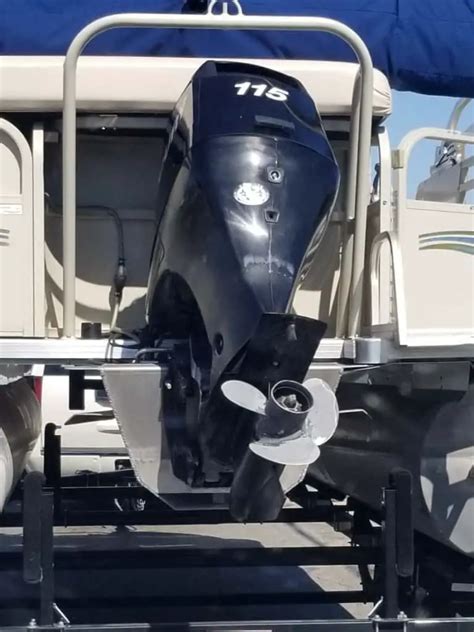How Long Can An Outboard Run Without Water
Ronan Farrow
Apr 05, 2025 · 3 min read

Table of Contents
How Long Can an Outboard Motor Run Without Water?
It's a question every boat owner dreads: how long can my outboard motor run without water before it suffers catastrophic damage? The short answer is: not long at all. Even a few seconds of running dry can cause irreparable harm to your outboard's internal components. Let's delve deeper into why this is so crucial and what steps you can take to prevent this potentially expensive problem.
The Dangers of Running an Outboard Dry
Outboard motors rely on a constant flow of water to cool the internal combustion engine. This water is pumped through a system that circulates around critical components like the engine block, cylinder head, and exhaust system. Without this cooling system functioning correctly, the engine will overheat rapidly.
What Happens During Overheating?
- Seized Engine: The most significant risk is a seized engine. When the engine overheats, the metal parts expand and can bind together, making the engine impossible to turn. This often requires a complete engine rebuild or replacement.
- Warped Cylinder Heads and Blocks: Extreme heat can warp the engine block and cylinder head, leading to significant internal damage and loss of compression.
- Damaged Pistons and Rings: Overheating can cause the pistons to seize or the rings to break, leading to costly repairs.
- Melted Components: Several internal components, such as seals and gaskets, can melt or become damaged from the extreme heat.
- Exhaust System Failure: The exhaust system is also cooled by the water, and running dry can lead to overheating and potential failure.
How to Prevent Running Your Outboard Dry
The best way to avoid this disastrous scenario is to be proactive and vigilant. Here's what you should do:
1. Regular Maintenance Checks
- Before Each Use: Always inspect your outboard's cooling system before every trip. Check for any leaks, obstructions, or damage to the water intake. Make sure the tell-tale water stream is visible and strong. A weak or absent stream is a critical warning sign.
- Routine Maintenance: Schedule regular maintenance with a qualified marine mechanic to ensure your cooling system is in top condition. This includes inspecting the impeller, water pump, and other critical components.
2. Understanding Your Outboard's Warning Signs
Pay close attention to your outboard's performance. These are warning signs that your cooling system might not be working correctly:
- Overheating Alarm: Many outboards have an overheating alarm. If this alarm sounds, immediately shut off the engine and investigate the problem.
- Reduced Water Flow: A weak or absent tell-tale water stream is a clear sign that your cooling system isn't functioning properly.
- Unusual Engine Sounds: Any unusual noises or knocking sounds from the engine could indicate overheating.
- Temperature Gauge: If your outboard has a temperature gauge, monitor it closely. A rising temperature is a critical warning sign.
3. Immediate Action When Problems Arise
If you suspect your outboard might be overheating, take immediate action:
- Shut Down the Engine: Immediately turn off the engine to prevent further damage.
- Check the Cooling System: Identify the source of the problem and address it before restarting the engine.
- Don't Force It: Never attempt to restart the engine if you suspect overheating has occurred.
Running an outboard motor without water is a recipe for disaster. Prevention through regular maintenance and attentive monitoring is far cheaper and less frustrating than dealing with a severely damaged engine. Be proactive and protect your valuable investment!
Featured Posts
Also read the following articles
| Article Title | Date |
|---|---|
| How Long Do Grillz Last | Apr 05, 2025 |
| How Long Does A Custom Ring Take To Make | Apr 05, 2025 |
| How Long Do 2500 Puffs Last | Apr 05, 2025 |
| How Long Does It Take To File For Emergency Custody | Apr 05, 2025 |
| How Long Do You Smoke Deer Sausage | Apr 05, 2025 |
Latest Posts
Thank you for visiting our website which covers about How Long Can An Outboard Run Without Water . We hope the information provided has been useful to you. Feel free to contact us if you have any questions or need further assistance. See you next time and don't miss to bookmark.
